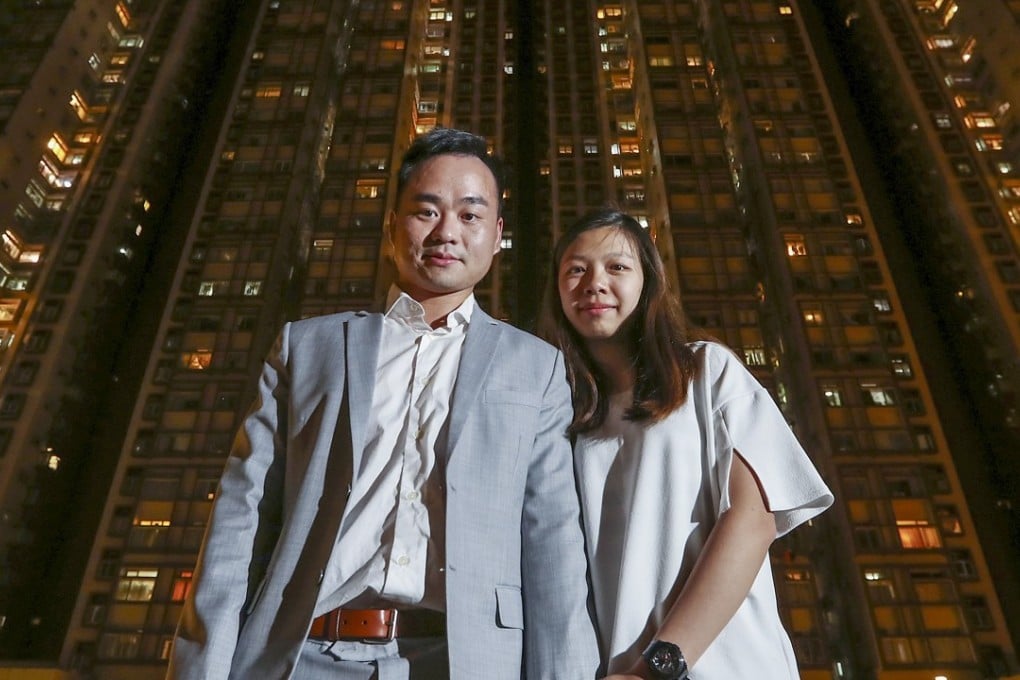Despite long commutes to save money, Hong Kong couple just can’t keep pace with rising property prices
Justin Yu and his wife want to have a baby but permanent home in private market seems an impossible dream

Justin Yu Wing-chung and his wife have been planning to have a baby, but there is a problem.
Yu, a 30-year-old surveyor, and his wife, a 26-year-old teacher, earn a combined monthly salary of HK$65,000 – an income to be envied by many of their peers, and they are not blowing their hard-earned money on luxuries.
But still, a permanent home in the private market seems so very far from the couple amid the ever-increasing property prices, no matter how diligently they’ve been trying to save.
“The problem has been troubling us,” Yu said. “How can we have a baby if we ourselves haven’t even settled down?”
The couple work in Tsim Sha Tsui and Jordan but are renting a 460 sq ft flat near Tuen Mun Ferry Pier for HK$10,000 a month, which means they spend two hours a day travelling between home and work by bus.
Yu said the reason why they lived so far away was that the rent was cheaper and they could save more money for eventually buying a home.